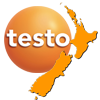
The Pharmaceutical industry generates US$300 billion every year. According to the World Health Organisation (WHO), it is characterised by its stringent regulations and its hundreds of best practices. Safely storing biopharmaceuticals, and even over-the-counter drugs, is by no means a simple task. It isn't just a matter of stacking them in an unregulated basement, no; companies participating in this sector need to constantly monitor their buildings climate to secure products retain their integrity.
Why it's such a critical concern
Large scale biotechnology production facilities cost between US$200 - 500 million to construct (according to McKinsey & Company). But these expenses don't cease after construction concludes — the expertise and attention required to maintain such a facility and its assets accrue huge costs over time. Furthermore, drug costs are expected to rise in the future.
As is true with any business, a major key is to ensure these expenditures don't get out of hand. If a critical HVAC unit fails in a hospital or storage facility, the unregulated temperatures can tarnish and compromise products and render them useless. This can be disastrous. What happens if a patient needs a particular antibiotic after a disease outbreak? Or a specific vaccine? It is crucial that these facilities are maintained at all times to prevent severe repercussions.
When it comes to facility maintenance, there are five concerns HVAC technicians and facility managers need to keep in mind.
- Temperature
WHO developed a set of guidelines that asserted that, assuming particular pharmaceuticals and medical supplies don't require any specific storage accommodations, these products need to be held in structures between 14 to 25 degrees Celsius. Certain conditions may allow for 30 degrees Celsius.
Web-accessible temperature loggers can alert facility managers to any fluctuations remotely. This allows them to notify nearby workers of the issue so it can be corrected as soon as possible.
- Wireless communications
There are many advantages to cloud-connected devices, but they do have some stringent requirements. The WHO states that wireless systems need to be able to continuously collect and buffer information, even in the event of a power or network outage. Furthermore, these temperature sensors need to be accurate enough to register temperature deviation of 0.5 degrees Celsius or less.
The WHO also advises facility managers to use platforms to manage and monitor multiple devices. Having the ability to remotely calibrate sensors makes for a more fluid and efficient workflow, while also enabling professionals to exercise tighter communication protection settings. The latter is a concern tied directly to the Internet of Things (IoT).
- Storage Design
According to the WHO, all pharmaceutical products must be stored in weatherproof, arid buildings. A facility's layout needs to support easy access. For conventional materials, simple shelving is appropriate. However, more sensitive items may require specialised rooms. For example, vaccines require refrigerated environments. They, therefore, must be held in a refrigerated space and cold-chain rooms. Humidity is also a factor that needs to be stringently controlled. In this regard, facility managers are advised to regularly conduct checks with handheld devices.
- Freezing
Even though some products require cold storage, these materials may sustain irreparable damage if frozen. For example, injectable contraceptives, ergometrine, adrenaline, insulin and hepatitis B vaccines will be rendered ineffective if exposed to excessively cold temperatures.
- Temperature Logger Maintenance
It should be clear by now the importance of keeping medical environments maintained. Therefore, it is crucial that temperature monitors are regularly checked, serviced and maintained. If not, major problems may occur that can be both costly and dangerous. If onsite technicians can't deduce what the problem is with a device, the device's manufacturer should be contacted immediately.
Overall, it is best practise to use HVAC devices that come with on-site services. If a manufacturer is easily contactable, problems can be mitigated at a quicker pace. In an industry as stringent as the pharmaceutical industry, response time is everything.
Testo New Zealand offers a range of tools to maintain a medical environment and comply with WHO, as well as offering on-site services to keep your facility running smoothly. To find out more about Testo New Zealand's range, get in contact with the team today.
